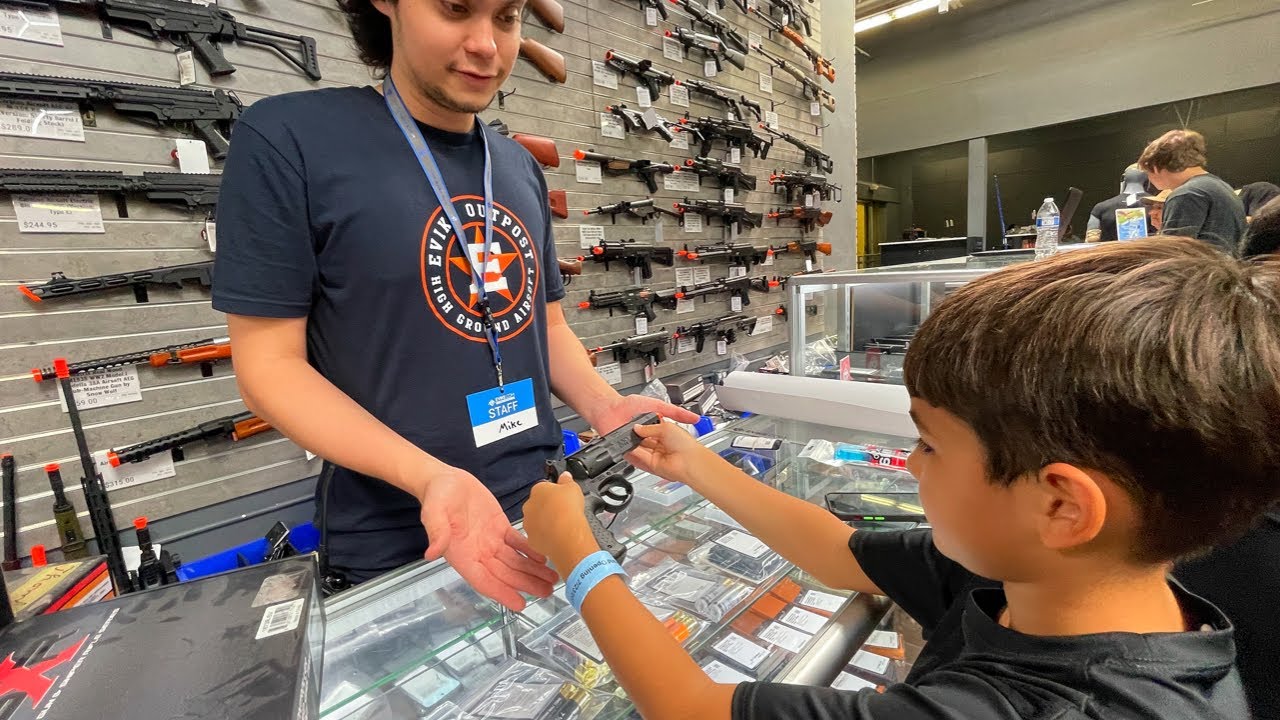Understanding the laws regarding airsoft pistols
Airsoft pistols are a popular recreational activity and a competitive sport in Rhode Island. However, it is essential to understand the laws and regulations surrounding the ownership, purchase, and use of airsoft pistols in the state. By following these guidelines, enthusiasts can ensure they are within legal boundaries and enjoy their hobby responsibly.
The definition of airsoft pistols in Rhode Island
In Rhode Island, airsoft pistols are defined as replica firearms that propel plastic projectiles using compressed air or a similar mechanism. They are designed to resemble real firearms, but they are non-lethal and intended for recreational purposes only.
Age restrictions for owning airsoft pistols
The age restrictions for owning airsoft pistols in Rhode Island are stringent. According to state law, individuals must be at least 18 years old to possess an airsoft pistol. Minors under the age of 18 are not allowed to own or possess these replica firearms.
Regulations for purchasing airsoft pistols in RI
When it comes to purchasing airsoft pistols in Rhode Island, there are specific regulations in place. Buyers must complete a background check, similar to those required for actual firearms. This ensures that individuals with criminal records or other disqualifying factors are prohibited from obtaining airsoft pistols.
Licensing requirements for airsoft pistol owners
While there are no specific licensing requirements for airsoft pistol owners in Rhode Island, individuals must adhere to the age restrictions and undergo a background check to purchase these replicas. However, it is essential to note that proper safety training and responsible ownership are highly encouraged.
Restrictions on carrying airsoft pistols in public
To minimize the risk of confusion or alarm, Rhode Island law prohibits carrying airsoft pistols in public places. It is illegal to openly display or carry these replicas unless they are transported in a secure case or container. This regulation aims to prevent the mistaken identification of airsoft pistols as real firearms.
Storage and transportation rules for airsoft pistols
When it comes to storing and transporting airsoft pistols in Rhode Island, there are specific rules to follow. Airsoft pistol owners must ensure that their replicas are stored in a safe and secure manner, preferably in a locked container or gun safe. During transportation, the replicas should be unloaded and stored in a locked case or container separate from any ammunition.
Penalties for illegal possession of airsoft pistols
The illegal possession of airsoft pistols in Rhode Island can result in serious consequences. If found in violation of the state’s laws, individuals may face criminal charges, fines, and even the confiscation of their airsoft pistols. It is crucial for residents to be aware of and comply with the regulations to avoid these penalties.
Permits for using airsoft pistols in designated areas
Rhode Island law allows for the use of airsoft pistols in designated areas, such as private properties or authorized facilities. However, individuals who wish to host or participate in airsoft events or competitions must obtain permits from the relevant authorities. These permits ensure that the activity is conducted safely and with proper oversight.
Safety guidelines for using airsoft pistols in RI
To ensure the safety of participants and the public, Rhode Island strongly emphasizes following specific safety guidelines when using airsoft pistols. This includes wearing appropriate protective gear such as eye and face protection. Moreover, players should always treat airsoft pistols as if they were real firearms and avoid pointing them at anyone who is not actively and willingly participating in the activity.
Advocacy for stricter regulations on airsoft pistols
While airsoft pistols are legal in Rhode Island, there have been discussions surrounding the need for stricter regulations to prevent misuse or accidents. Advocates argue that additional measures, such as mandatory safety training or further restrictions on public use, could enhance overall safety and mitigate potential risks associated with airsoft pistols. These discussions aim to strike a balance between preserving the recreational nature of airsoft and ensuring public safety.





